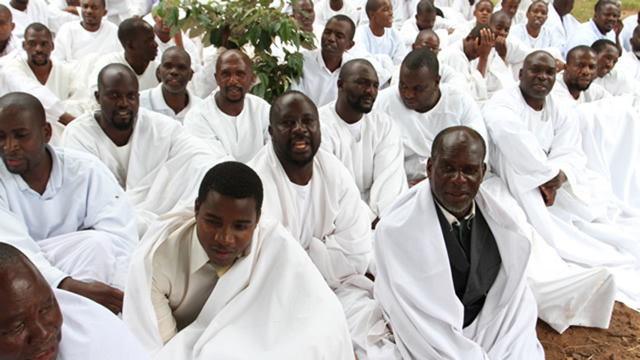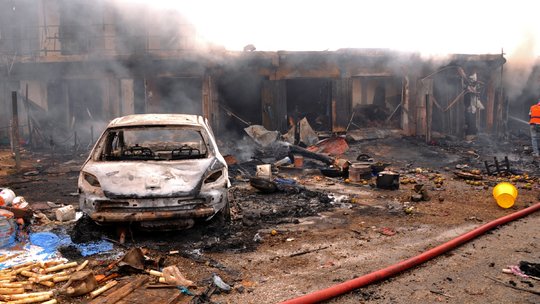Churches scale up child protection

Stanely Mushava : Features Correspondent
If poverty has the face of a woman, as a development practitioner once said, then it possibly has the back of a child. In an escalating range of scenarios, children are ceding their dignity to generate income for modern day slave drivers. Worse violations, however, thrive behind the veils of religion, family and culture, institutions ideally fitted to maximise the welfare of every child but are now being twisted to destroy it.The abuses suffered by children whom retrogressive culture and poverty has marked for their own are making Charles Dickens’ most wretched stock characters new headline material all over again.
For some early school drop-outs, a ticket to the city spells the difference between heaven and hell. Only, every modest expectation is soon dashed as they are deployed to beg on the streets, forced to work for free or subjected to other forms of victimisation.
According to the 2015 Trafficking in Persons Report, family members recruit children from villages for work in cities where they are subjected to forced labour, with some vulnerable children lured with promises of education or adoption.
Children are being forced into early marriages, while some are denied access to medical services and education because of economic hardships on one hand, and the religious or cultural beliefs of the parents on other.
On January 15, the Constitutional Court ruled that early child marriages are not allowed but there has not been any sanction on the perpetrators.
Churches are collaborating under the Heads of Christian Denominations and their basic ecumenical capacities, Union for Development of Apostolic Church in Zimbabwe and Africa (UDACIZA), Zimbabwe Catholic Bishops Conference (ZCBC), Evangelical Fellowship of Zimbabwe (EFZ) and Zimbabwe Council of Churches (ZCC), to promote the constitutionally and scripturally guaranteed rights of children.
ZCBC parliamentary liaison officer Fr Edward Ndete said the church had partnered Government to speed up the alignment of the Children’s Act, and other denominations in encouraging respect for children’s rights.
“For the past three weeks, we have been working with the Ministry of Labour and Social Welfare for the alignment of the Children’s Act. As we speak, together with Parliament, we (ZCBC) want to effectively criminalise child marriages in line with the January 15 ruling,” Fr Ndete said.
“In the Children’s Act, there is provision for child marriages. A girl who is 16 can marry in that Act. That’s the Act that was done away with to say it is unconstitutional.
“So what is needed now is to align that law with the Constitution to say if anyone marries a child below the age of 18, he or she will be given a prison term,” he said.
Fr Ndete said the church’s obligation to guarantee the welfare of children is traditional but there is need to update strategies, including deploying legal means, to maximise this mission.
“The Bible is unequivocally against sin and abuse. It is also against illegality, of which child marriage in this country is. So the church is part of the team that has to fight against the breaking of the law, especially when the victims cannot stand for themselves,” Fr Ndete said.
“The church has also been engaged in proactive measures such as the construction of schools, orphanages and hospitals to ensure that the rights of children are safeguarded.”
The lawyer-priest said the church was actively involved against child trafficking which has become topical in recent times.
“The problem has been known to the church for a long time and by virtue of the church being universal, our efforts against it have been co-ordinated from one country office to another,” Fr Ndete said.
“However, we are scaling up our efforts both on the educational and the legal fronts to fight the worsening challenge. The educational department of the ZCBC recently developed a child protection policy to guard against human trafficking in Zimbabwe,” he added.
According to the policy, every year, men, women and children are trafficked within Zimbabwe and across the borders and forced to work for little or no pay.
“Sexual exploitation is by far the most commonly identified form of trafficking. The exploitation of children in begging, sex trade and warfare is real and rising,” the policy says.
“As a church community, we accept that it is the responsibility of all of us, ordained, professed, paid and voluntary members, to work together to prevent the physical, sexual or emotional abuse of children, young people and vulnerable adults,” he said.
The 2015 Trafficking in Persons Report says Zimbabwe is a source, transit, and destination country for men, women, and children subjected to sex trafficking and forced labour.
Caritas director Chris Mwembe said churches and para-church ministries were working together with institutions such as the International Organisation for Migration to prevent trafficking.
“As the church, our efforts are informed by the seven-point plan of protection, prevention, prosecution, participation, policy, partnerships and prayer against trafficking.
“People tend to think of trafficking in foreign terms but I will give you local examples of this problem. Suppose you go back to Gutu and take back your nephew under the pretext of sending him to school. Instead of sending him to school, you make him work for your own profit,” Mr Mwembe said.
“There are many such cases being reported. We are acting against this by creating awareness among congregants.
“It is also sad, how we are not doing enough to address the issue of children on the streets. Some of the people we call street children are actually trafficked from rural areas and brought to towns to make money for certain people.
“During the day, the child will be in town begging. At night, he or she returns home s
he is expected to hand over all the money,” he said.
The Union for Development of Apostolic Church in Zimbabwe and Africa (UDACIZA) director Rev Edison Tsvakai said his organisation was making headway in ensuring that children are enjoy their rights.
“There was the sad situation where we had infant mortality because some denominations taught that it was against their founding traditions to send children to hospital but now this attitude is changing, both at denominational level and at the level of personal conviction,” Rev Tsvakai said.
UDACIZA came up with the Apostolic Strategy Action Plan for 2014 to 2016, encouraging member denominations to promote the well-being of children.
“We have made headway in the vaccination of children. Now our women are agreeing to give birth in a clinic, which is good for both the mothers and the children,” Rev Tsvakai said.
“It is not easy to overhaul tradition overnight. You have to be within the group and to share its core values but to point out the importance of moving ahead in matters of health and child care,” he said.
“For example, when there were programmes for fighting malnutrition by people from the Ministry of Health, our people would not attend if that programme was held in hospitals. So there was need to be flexible.
“Such meetings could be moved to other venues so that everyone benefits but once they had heard how beneficial for the children the message was, they would participate in future meetings and adopt the recommendations,” he said.
Rev Tsvakai said more parents were now acknowledging the importance of having a birth record for the child, given that children who did not were bound to have difficulties accessing key services.
“So people are now seeing that there is no spiritual harm in ensuring that children get necessary services and some of the scruples are falling away,” he said.
“It is hard to reach out to the sect from outside. They need to understand that it is our own people bringing new understanding. For example, if you mix pentecostal and apostolic women and have them to share health messages, the result could be prejudice on the outside.
“However, since we put together the Apostolic Strategy Action Plan, many denominations have been adopting it and the results have been a major leap in child care.
“When it comes to education, people tend to miss the real problem. It is not that our people do not want to send their children to school. In most cases, men have stuck to conservative practices in a changing economy. In the yesteryear, you could have as many wives and children as possible and still be able to fend for them through gardening and smallholder farming.
“But now the climate is changing. People are not getting much from that. As a result, once a child reaches Grade 7, it becomes difficult to send them to secondary school which is more expensive. We are getting together and saying: ‘Men and brothers, we cannot continue this way. We need to empower the children.’ Most people are getting the message but I will tell you one line of resistance.
“Some churches are rigidly grounded in booklets called ‘umbowo’ which are based on the teaching of the church founders. They will tell you that practices such as polygamy are set in stone according to the teaching.
“Others will say: ‘Let us go and ask those on the outside how many women they have been with, even though they are officially married to one wife.’ They say: ‘We are only doing this officially so that they Holy Spirit does not fish us out during the gatherings.’
“So the attitudes vary, with the older denominations being the centre of resistance but there are a lot of positive changes. More children are getting the services they are entitled to and we are continuing dialogue,” Rev Tsvakai said.









Comments